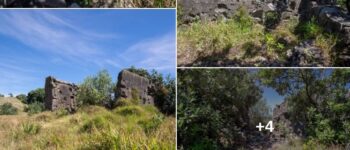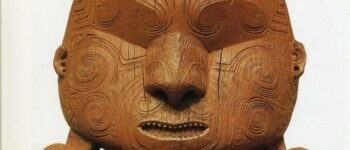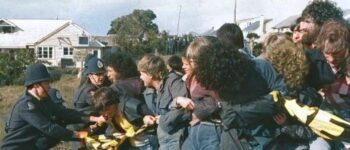
1800s: New Zealand Not Quiet
By
There were thousands of non-Maori legally coming and going from New Zealand prior to 1840. Very soon after Captain Cook’s (re)discovery, this country became a destination for numerous visitors and of course it was covered by governing laws. Comment to AHNZ: No, there was no “law” at that time so how could they be legal or […]
Read more..January 21, 2020

1990: Who Are We
By AHNZ
Imagine a New Year where Anglo-Zelandians and Polynesian-Zelandians responded to and connected to a love of their country. So much so that patriotism and values were an appropriate package to sell us financial services. Such a new year was 1991. We are fortunate to be able to replay this video history from director/narrator Len Potts […]
Read more..January 2, 2022

1912: Muriwai Mystery
By AHNZ
Muriwai Beach, West Auckland, has a very long history. Even 100 years ago historians and naturalists were able to excavate even older remains from the rubbish piles they had left behind. For example, the unusual discovery of the Muriwai beach boomerang in 1925 stands out. Ref. 1925: Maori Boomerang Discovered, AHNZ Various groups inhabited the […]
Read more..January 13, 2025

1991: Te Rua
By AHNZ
Te Rua. A government-funded heist movie where German art imported from New Zealand is the tempting target. Wi Kuki Kaa’s fine acting performance as a Silent Generation Maori elite clinking glasses in Europe. But his conscience is tortured by his art thief nephew and this guilt-tripping white women. How much emotional blackmail can a man […]
Read more..January 9, 2025

1973: The Great Ngaruawahia Music Festival
By AHNZ
Tonight in New Zealand history, 8 January, 1973, Black Sabbath wrapped up the Great Ngaruawahia Music Festival. This was our version of Woodstock, New Zealand’s first significant outdoor music event, attracting 18,000 people. Mainstream Boomers were into their Hippy or Country music. Festival organisers Barry Coburn and Robert Raymond were offering an alternative. Ngaruawahia would be […]
Read more..January 8, 2025

1836: Pukaki’s Gateway
By AHNZ
Little did we know that our 20c coin these last 20 years featured a cannibal chief in the midst of a necrophilic sex act! Pukaki, a Te Arawa warlord from 1700s Rotorua lived a violent life. Maoris at this time lived in a Hobbsean war of all against all. Constant strife was either simmering or […]
Read more..January 6, 2025

1977: Bastion Point
By AHNZ
The Bastion Point occupation got underway today in New Zealand history, 5 January 1977. After many warnings and deadlines ignored, The State finally put a stop to this major protest after 506 days; it ended on 25 May 1978. Representatives of the Ngati Whatua were not happy about their ancestral leaders selling the land to […]
Read more..January 5, 2025

2005: Bo-Gyung Ko
By AHNZ
Asian women have long dominated the Ladies Professional Golf Association (LPGA) where competition is fierce and prize-money huge. Even the barriers to entry into the competition circuit itself is greatly prohibitive. A novel way to differentiate a player and open some doors apparently occurred to one Republic of Korea couple, Mr and Mrs Ko. By […]
Read more..January 3, 2025

1888: Reefton’s Electric Christmas
By AHNZ
The year 1870 marked a new phase in New Zealand gold mining with the discovery of deposits in the Inangahua Valley; Reefton. If not for the new stimulus of Reefton quartz and Kumara alluvial the West Coast’s Golden days would have been done. Many who had come to the Coast for gold had already moved […]
Read more..December 31, 2024

1996: Fly Buys
By AHNZ
Fly Buys, est. 1996, was once huge but ended at the stroke of midnight on 1 January, 2025. “The Flybuys catalogue became legendary, filled with an endless array of items that could be “purchased” with points. At its peak, Flybuys had over 20 contributing partners, close to 3 million members, and featured in 80% of […]
Read more..December 30, 2024

1902: Waimarino County
By AHNZ
Waimarino County came into existence by its own Act of Parliament on 2 October, 1902. The Waimarino block, located at the foot of Mount Ruapehu, had enough settlers to have transitioned from Settler frontier, to Road Board, to County. By 1918 they had their own County Offices at the County Seat of Raetihi but it was destroyed […]
Read more..December 24, 2024




